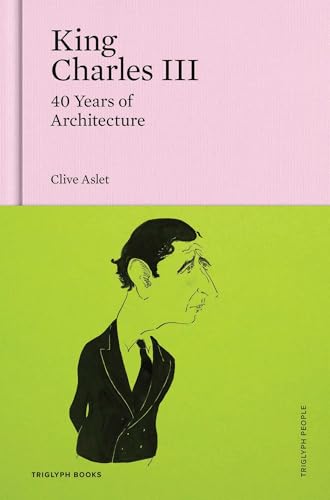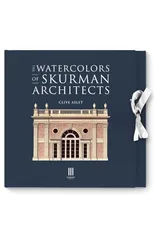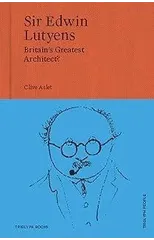King Charles III
40 Years of Architecture : 2
(Author) Clive Aslet"Until now there has not been a proper study made of the King's contribution to the built environment...This brilliant book takes us through all of it." -Jools Holland OBE DL, Composer, Pianist, Bandleader and Broadcaster "Here is a book and a half, a quite glorious book and a half...The King's interest in architecture has always been stirringly exemplary, and as Aslet most poetically puts it, it is thanks to our noble King that 'Harmony is back on her throne." -Lucinda Lambton, Writer, Photographer and Broadcaster - The first book to comprehensively detail King Charles III's passion for architecture, spanning from his famous Carbuncle speech in 1984 to his accession to the throne - Written by Professor Clive Aslet, who has followed the King's architectural journey for four decades as a leading journalist - Features new research and in-depth interviews with architects, critics, and advisors who collaborated with the (then) Prince of Wales King Charles III's affection for architecture is well-known, but the extent of his engagement has never been fully presented to the public. This is the first book to draw together the many threads, from the 'carbuncle' speech, made at Hampton Court in 1984, until his accession to the throne. He has created model settlements such as Poundbury through the Duchy of Cornwall, Dumfries House in East Ayrshire has been made a beacon of social regeneration, and his educational initiatives have changed lives. The four decades of the King's commitment to architecture have coincided with Clive Aslet's career as a journalist, during which he has followed the story and often written about it, not least during the 13 years for which he was editor of Country Life. King Charles III: 40 Years of Architecture is based on new research including many interviews with the architects, critics, advisors and academics who worked with the (then) Prince of Wales on his far-reaching endeavors.
Clive Aslet
Clive Aslet is a British writer best known for his book "The American Country House." His literary style is characterized by meticulous research and engaging storytelling. Aslet has made significant contributions to literature by exploring the history and architecture of grand estates, shedding light on their cultural significance.








